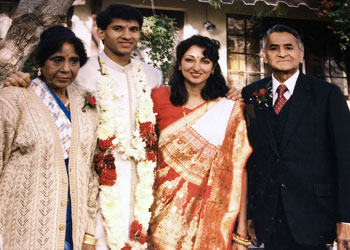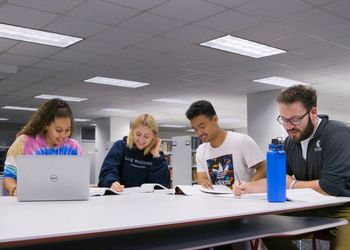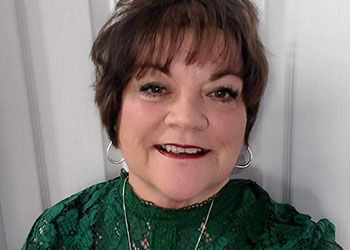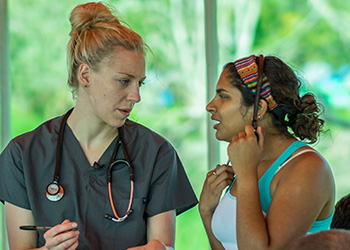MSU Professor Establishes Scholarship as Tribute to His Parents
“They did not have a lot of money when they came over, but education was prima facie for them. They felt this was a very important goal in their lives, as do most parents of Indian origin, that their children have the best education possible.”
May 4, 2015
He may be a recent arrival in East Lansing by way of Ann Arbor, but Suresh Mukherji, who became professor and Department of Radiology chairperson in 2013, is so appreciative of the opportunities that the university has offered him and countless others by way of its land-grant mission that he has established an endowed scholarship here.
It’s named in honor of his parents, physicians who both emigrated from India to the U.S. and met after they arrived in Chicago. The two found their way to Louisville, Kentucky, where Chandra, an ob/gyn, and Phatick, a pediatrician, raised their son. They emphasized the value of a good education and made it a priority to give him every opportunity that they could.
“They did not have a lot of money when they came over, but education was prima facie for them,” Mukherji says. “They really felt this was a very important goal in their lives, as do most parents of Indian origin, that their children have the best education possible.”
It was a lesson that Suresh took to heart and it was on his mind this past spring when he attended the MSUCOM scholarship dinner.
“I was really impressed not only by the level of philanthropy, but also the pride that was clearly visible in the awardees,” he says. “Attending that event and seeing what a difference we could make in young physicians’ lives, helping them, in some small part, to achieve their goal of graduating from medical school, and also having the means to create something in which my parents will be remembered in perpetuity, I thought was extraordinarily important.”
As a result, beginning in 2015 the Chandra and Phatick Mukherji Memorial Scholarship will be offered annually to one MSUCOM student. Suresh hopes to reward excellent students with financial need.
“We want to give the award to those who are excelling academically, but may not have the means to meet all of their financial obligations. We feel this approach will have the most impact as it will permit those individuals who have the talent but may not have the chance due to financial constraints to be physicians.”
In addition to providing a monetary boost, Mukherji hopes that the award will also provide valuable support to the awardee in this pivotal time of their training that comes with such recognition.
“As a young person, you have a lot of interesting ideas,” he explains. “The ‘tailwind’ that continues to enable you to persevere is the support you receive from your friends, family, peers and, increasingly, philanthropists. We hope this award will both reward and validate the sacrifices the students have already made and will make to reach their ultimate goal. When I see someone chosen to receive one of these awards, the look in their eyes and the excitement about being acknowledged by their peers is very rewarding.”
Mukherji was division director of neuroradiology at the University of Michigan for many years. He is a recognized expert in head and neck imaging, especially of head and neck cancers. Though none of his degrees have come from MSU (he received a B.A. from Duke University, an M.D. from Georgetown University Medical School and an M.B.A. from the University of Michigan), he understands what it means to be a Spartan and the full breadth of what the institution offers.
“What MSU has provided individuals throughout the state and around the country is the ‘key to life’,” he points out. “From an educational and academic standpoint of course, but also in terms of personal growth and networking opportunities, you have all the elements at MSU that you need to succeed.”
He also fully espouses MSU’s culture of philanthropy and encourages others who value what they have received from MSU to seriously consider building on the foundation that has been established for them.
“For those individuals who have benefited from this institution and are now in that stage where their families are taken care of and their kids are about to embark on their own careers, why not think about giving back?”
But at its core, his gift is a way to preserve the memory of his parents, two people who traveled halfway around the world to find each other and then spent the rest of their lives giving to their patients and their family.
“There is this adage that says the only people who really remember you are your kids, and I think part of the remembrance that I’d like to have for my parents, at least for as long as MSU and the College of Osteopathic Medicine are here, is that they will always be remembered, long after I’m gone, long after my kids are gone—there’s always going to be a remembrance of their names.”




